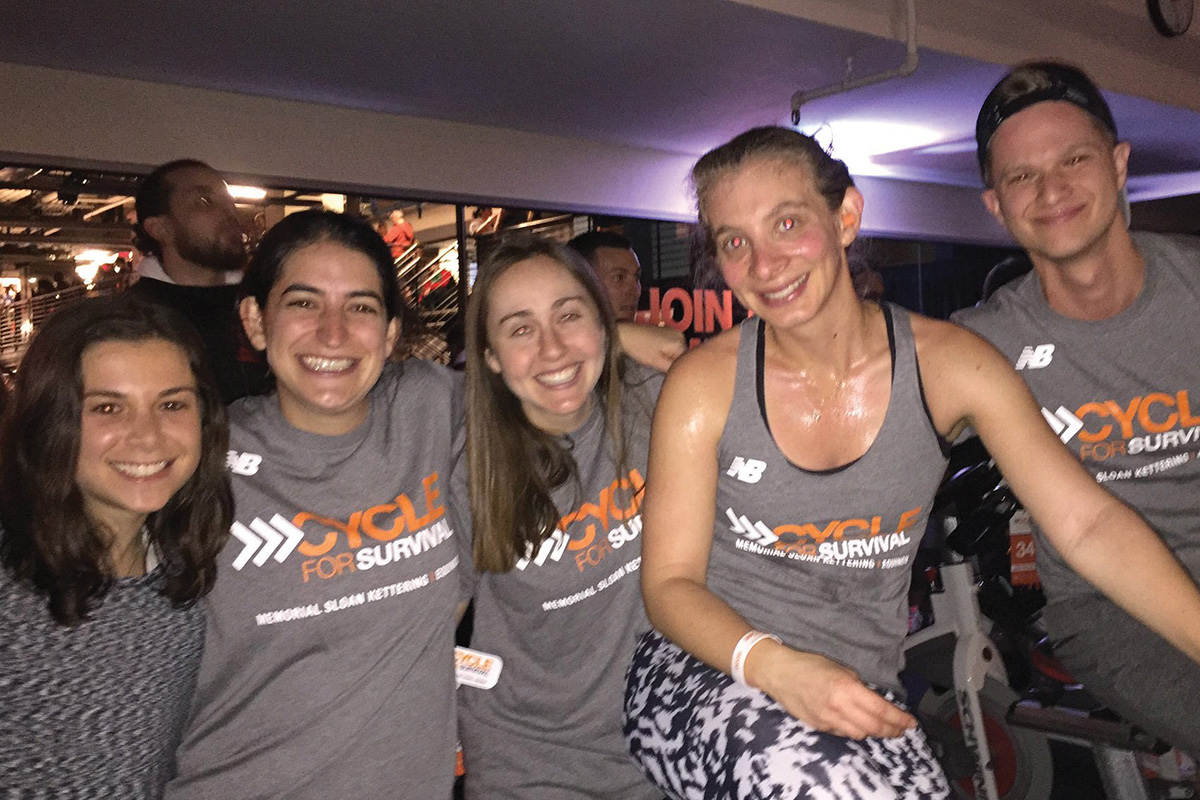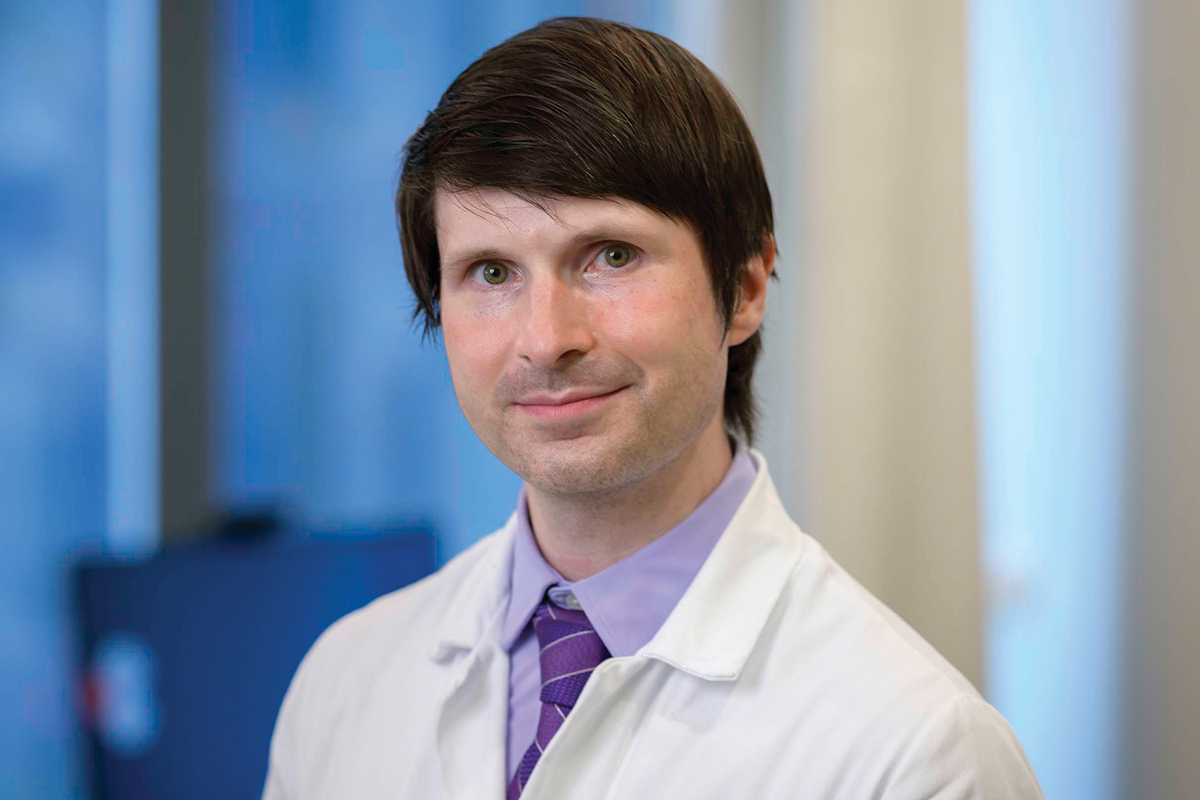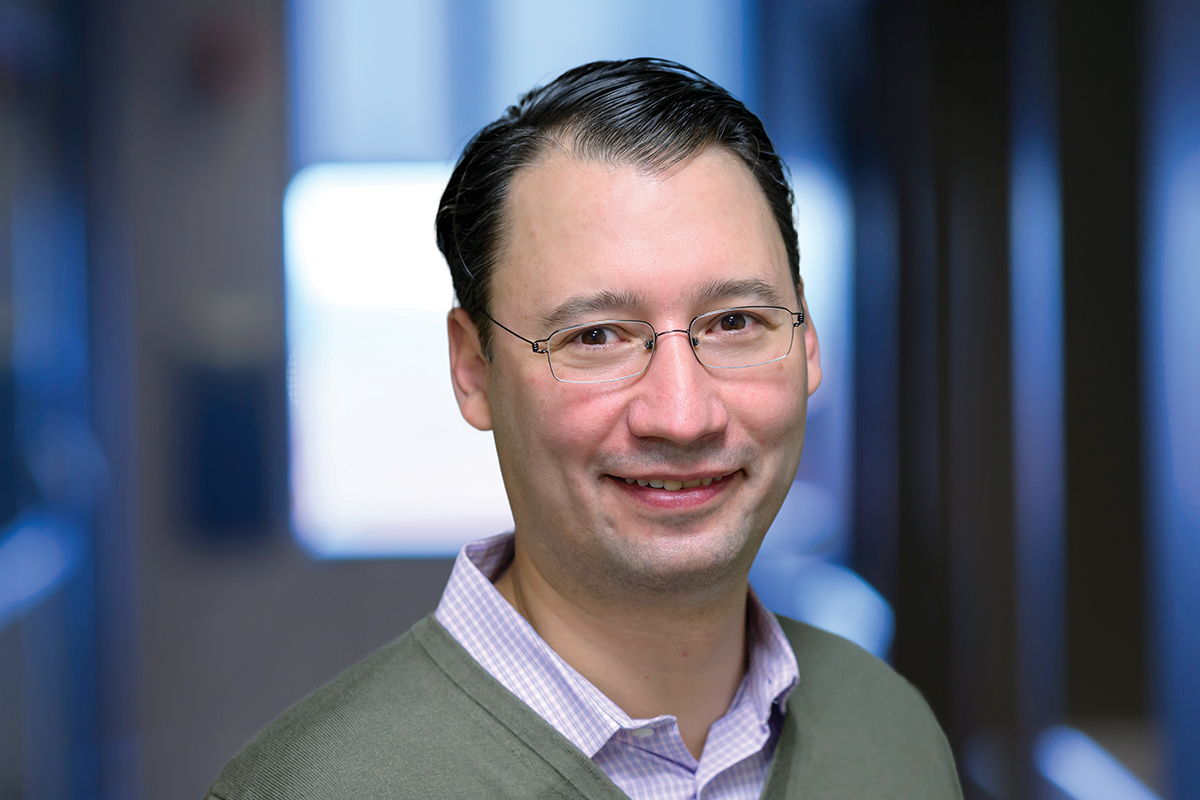
Memorial Sloan Kettering Cancer Center pediatric oncologist Julia Glade Bender recalls very clearly the event that sparked her interest in improving care for adolescents and young adults with cancer. She was treating children with cancer at another New York City medical center when her 24-year-old niece was diagnosed with sarcoma, a type of cancer that starts in the bones or connective tissues.
“My sister, who is also a doctor, came to me, and we decided Emily should come to MSK for treatment,” Dr. Glade Bender says.
The typical approach in a case like Emily’s, in which the cancer is located in the thigh, is to treat the patient first with radiation to shrink the tumor, and then with surgery to remove it.
But Dr. Glade Bender — who had trained at MSK and was about to come back as Vice Chair for Pediatric Clinical Research at MSK Kids — had a different idea. Her niece was only 24 years old, and the tumor was low grade.
“I knew that radiation in young people could cause problems later in life, most notably a risk for developing a second cancer,” Dr. Glade Bender says. “For kids with a low-grade tumor, we just take it out if at all possible.”
That’s when she stepped in and asked Bill Tap, Chief of the Sarcoma Medical Oncology Service at MSK, whom she knew through national meetings and prior shared patients, to take over her niece’s care. Dr. Tap recommended immediate surgery. Her niece was never exposed to radiation and is doing very well today.
“That was my first entrée into this idea that, even within a single institution, an adolescent or young adult (AYA) patient could end up getting a different treatment recommendation depending on which team of doctors they saw first,” Dr. Glade Bender says.
As a pediatric oncologist, Dr. Glade Bender had the wherewithal to help her niece navigate the process and get her the most personalized care. But others aren’t so lucky.
“Not everybody has an Aunt Julia,” she says.
That’s why the Lisa and Scott Stuart Center for Adolescent and Young Adult Cancers is so important and necessary: It will ensure that AYA patients benefit from the combined expertise of physicians and researchers across MSK.
As pediatric oncologist Paul Meyers, Robbins Family Chair at MSK, notes: “We are not a children’s hospital; we are not an adult hospital. We are a full-service cancer hospital that cares for all ages.”

A New Way of Thinking about Cancer
What happened to Dr. Glade Bender’s niece highlights the need for a new approach to treating cancer — one that is not necessarily based on the patient’s age or even where the tumor started. It’s all about the biology of someone’s cancer cells. The best treatment targets the exact molecular aspects of a tumor.
Doctors now know that cancers originating in different organs can share the same underlying molecular drivers, making them more similar to one another than to tumors arising from the same organ. Lung and thyroid tumors with a type of mutation called a RET fusion, for example, will both respond to the targeted drug selpercatinib (Retevmo®), even though these tumors are otherwise very different.
Likewise, children can get tumors that are much more common in adults. For example, colorectal cancer is predominantly a disease of older adults. But increasingly, doctors are seeing more and more young people with this cancer. The greatest increase is in patients ages 20 to 29, but it can be seen in patients sometimes as young as 14.
Although some experts had thought the biology of colorectal cancer in the young is different from its form in older adults and more aggressive as well, an important new study authored by MSK medical oncologist Andrea Cercek found that early-onset colorectal cancer is likely not different from average-onset colorectal cancer.
Doctors aren’t yet sure why more young people are developing colorectal cancer. But what’s not in dispute is that pediatric oncologists have far less experience than their counterparts who treat adults with the disease.
“You won’t find a single pediatric oncologist who knows that literature and that biology and those treatment paradigms,” Dr. Glade Bender says.
That’s why doctors at the Stuart Center are partnering with MSK’s Center for Young Onset Colorectal and Gastrointestinal Cancers to make sure that young people with colorectal cancer benefit from the expertise of those most likely to treat the disease. In the case of young people with colorectal cancer, the best treatment may be one developed for adults. But in other kinds of cancer, the opposite may be true.
Treating Adults More Like Children
Mark Geyer is a hematologic oncologist at MSK who primarily treats adults with leukemia. Historically, adults and children with leukemia were treated not only by different teams of doctors but also with different treatment regimens developed specifically for each age group. But that’s beginning to change.
“A number of research groups have found that adolescents who are treated on pediatric-type protocols for acute lymphoblastic leukemia (ALL), for example, have better outcomes than patients in the exact same age group who were treated on adult regimens,” Dr. Geyer says. “On average, they have about 15 percent better long-term survival.”
A large US-based study published in 2008 reported that adolescents ages 16 to 20 with ALL treated on pediatric-type protocols had a seven-year survival rate of 67 percent, compared with 46 percent for those on adult regimens. These findings and others led doctors to study pediatric regimens in the AYA population (up to age 39): Some recent reports have found a three-year survival rate exceeding 70 percent.
There could be several reasons why adolescents and young adults do better on pediatric protocols. Dr. Geyer says it could be that the treatment regimens developed for children are just inherently better. Or it could be that with kids, it’s easier to ensure that patients get to their appointments on time and stick to dosing schedules. Finally, there could be biological reasons specific to the cancers — which is something MSK researchers are keen to find out.

Regardless of the reason, he says, treating adolescents and young adults with a pediatric protocol suited to their type of ALL has become MSK’s preferred approach for patients up to age 40.
“At MSK, we have patients who are currently being treated in the adult program based on protocols developed over decades by the Children’s Oncology Group,” Dr. Geyer says.
Dr. Geyer and his colleagues also conducted a multicenter clinical trial of a pediatric-inspired protocol designed at MSK for adult patients with ALL and lymphoblastic lymphoma, which incorporates many of the principles shown to be successful in treating children with ALL but adapts them to make the treatment more tolerable for adults — even those up to age 60.
This is the kind of flexibility and tailored treatment that the Stuart Center will help facilitate for every type of cancer, not just leukemia. The ultimate goal is matching patients irrespective of age to treatments that best match the biology of their underlying disease.
“Jumping Genes” May Explain Why Young People Get Cancer
One of the long-standing questions about cancer in young people is how it can develop in those who haven’t lived long enough to acquire genetic mutations through environmental exposures such as smoking, radiation, or asbestos.
In some instances, the answer may have to do with inherited mutations that predispose children and young people to cancer. Retinoblastoma, a cancer of the eye that predominantly affects young children, is a good case in point: Those affected typically inherit a mutated copy of the RB gene that greatly increases the odds of the cancer forming. “MSK’s clinical genetics service, which offers genetic testing and counseling across the whole lifespan, is a crucial part of the comprehensive cancer care that MSK provides,” says geneticist and pediatric oncologist Michael Walsh.
But for others, the cause of the cancer remains a mystery — one MSK would like to solve. Thanks to research conducted through the newly launched Tow Center for Developmental Oncology at MSK, led by pediatric oncologist and cancer biologist Alex Kentsis, an intriguing explanation has come to light.
It turns out that for a majority of childhood tumors, including medulloblastomas, neuroblastomas, and a variety of sarcomas, a gene called PGBD5 becomes abnormally activated during childhood. This gene makes an enzyme that snips out DNA segments and moves them to a different location within the genome. This DNA transfer can drastically alter normal gene function and trigger cancer.
So rather than normal cells becoming cancerous as a result of random mutations, PGBD5 actually produces the mutations that turn cells malignant.
PGBD5 belongs to a family of enzymes called transposases. The DNA segments these enzymes move are called transposons. Often called “jumping genes,” transposons were originally discovered in the 1940s by cell biologist Barbara McClintock, who studied corn genetics. Jumping genes make up about half of the DNA of a human.
The discovery that jumping genes play a role in cancer has fueled interest in the idea that many, perhaps even most, childhood cancers might be caused by a similar sort of mechanism. And, in fact, a similar jumping gene, caused by a hyperactive protein called RAG1, was recently discovered to be a driver of blood cancers, such as leukemia.

“This is exciting because it provides a very satisfying explanation for why young people get cancer. It’s not bad luck per se,” Dr. Kentsis says. “And because DNA transposases, such as RAG1 and PGBD5, control a very distinctive process, that opens up new strategies for therapy that in principle could be not only highly effective but also very safe and precise. That’s what all of us are working so hard to achieve.”
Figuring out what causes PGBD5, RAG1, and other developmental proteins to be overactive is the next question researchers affiliated with the Tow Center will try to answer. This kind of scientific collaboration — between doctors who care for patients and laboratory researchers looking at the underlying biology — is what will drive progress toward better treatments.
MSK is about to initiate a clinical trial of a drug designed to target cancers with stressed DNA, such as that caused by PGBD5. It will be led by Michael Ortiz, an MSK investigator who is co-mentored by Drs. Kentsis and Glade Bender, and made available nationwide through the Children’s Oncology Group to patients with several typical pediatric cancers.
Supported by the Tow Center, MSK investigator Melissa Lumish will be pursuing the question of why young people are getting colorectal cancer at increasing frequencies. She’ll be looking specifically at their microbiome to see if there’s something about the microbes in their guts that is putting them at risk.
For her part, Dr. Glade Bender looks forward to a day when laboratory discoveries, such as those from the Kentsis Lab and other laboratories at MSK supported by the Tow Center, provide the tools to tailor treatments.
“The approach is not going to be ‘If you fall into this age group, you get X treatment; if you fall into that age group, you get Y treatment,’ ” she says. “It’s going to be much more about the biology of your disease and what makes the most sense for you as an individual. Ultimately, that’s what will improve the care for people like my niece and other young people with cancer.”



